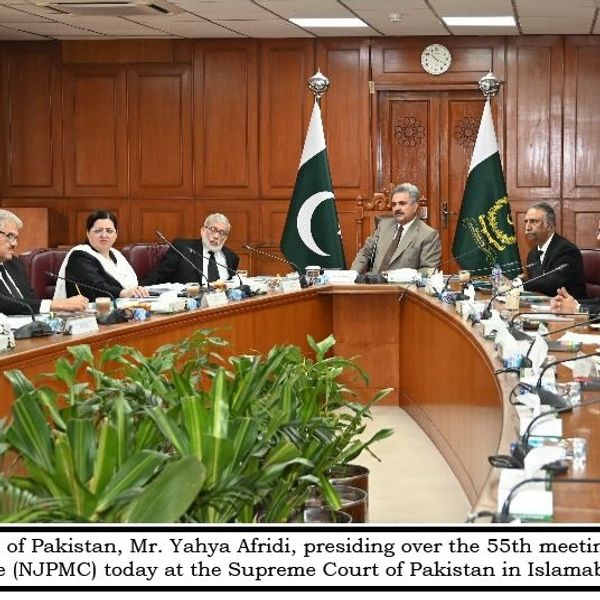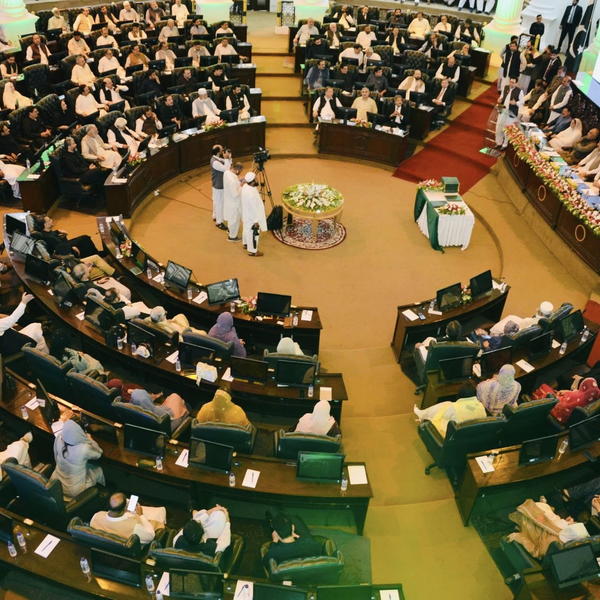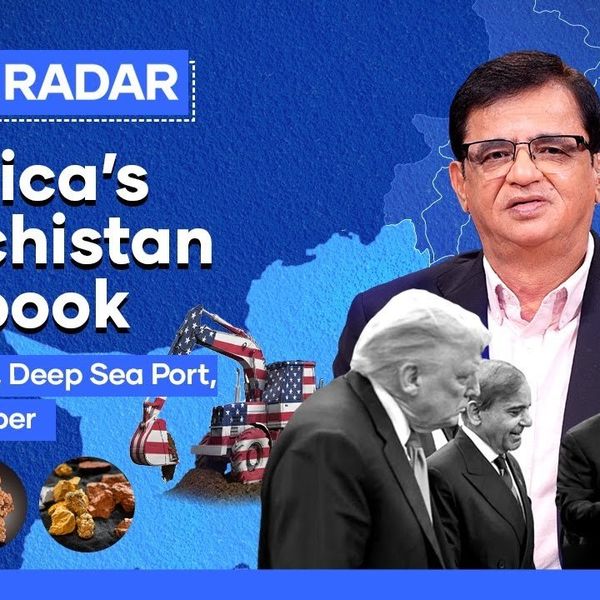Pakistan balances US and China ties in ‘golden era’ of foreign policy
Kamran Khan highlights US trade concessions and security cooperation as Islamabad strengthens global ties
News Desk
The News Desk provides timely and factual coverage of national and international events, with an emphasis on accuracy and clarity.
Pakistan’s foreign policy is experiencing what Kamran Khan describes as a “golden era,” with Islamabad balancing ties between Washington and Beijing in ways not seen before.
Khan said in his latest vlog that China remains Pakistan’s traditional ally, but the surprise development is that the United States is now extending full political, diplomatic and trade support. He noted that unlike in the past, Washington has not publicly put forward any demands in return.
Khan pointed out that U.S. President Donald Trump’s administration has granted Pakistan significant trade concessions, reducing tariffs on Pakistani exports to 19 percent — far lower than the 50 percent duty imposed on Indian goods. He said the shift has opened doors for U.S. companies and investors in Pakistan’s oil, gas, natural resources and rare earth sectors.
He added that counterterrorism cooperation has also deepened. Pakistan has handed over militants wanted by the U.S., while Washington designated the Balochistan Liberation Army’s Majeed Brigade as a terrorist group.
Khan highlighted the appointment of Sergio Gor, Trump’s longtime political adviser, as the new U.S. ambassador to India. Unlike career diplomats, Gor will also serve as special envoy for South and Central Asia. This dual role, Khan said, effectively “re-hyphenates” U.S. policy toward Pakistan and India, putting the two neighbors back on equal footing.
According to Khan, India has expressed concerns over this move, while Trump has appeared increasingly aligned with Pakistan’s narrative since what he described as India’s military defeat in recent clashes.
Unconfirmed reports, Khan noted, suggest a possible meeting between Trump and Prime Minister Shehbaz Sharif on the sidelines of the United Nations General Assembly in September. Separate reports also hint that U.S. Secretary of State Marco Rubio may visit Pakistan in October.
Despite these political developments, Khan stressed that much of Washington’s engagement bypasses Islamabad and goes directly to Rawalpindi, with Field Marshal Syed Asim Munir leading military diplomacy from the front.
At the same time, Khan said China continues to reaffirm its strategic commitment to Pakistan. Chinese Foreign Minister Wang Yi recently met with President Asif Ali Zardari, Prime Minister Sharif and Field Marshal Munir. Following the meetings, Beijing issued a statement describing Pakistan’s military as a pillar of stability and Munir as the guardian of Sino-Pak friendship.
Khan concluded that Pakistan today enjoys strong relations with both superpowers, a stark shift from decades when the U.S. prioritized India in its strategic outlook.
The question, he cautioned, is whether this new U.S.-Pakistan “romance” is sustainable or merely a temporary arrangement. Without a long-term framework, he warned, the partnership could risk the same “breakup” that marked past cycles of cooperation.











Comments
See what people are discussing